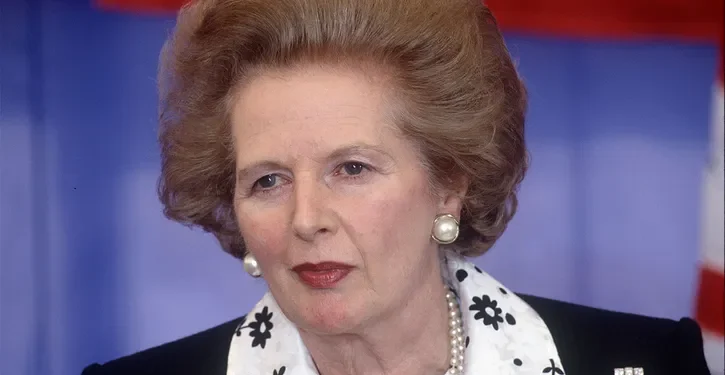Margaret Thatcher, the first female Prime Minister of the United Kingdom, achieved a notable victory in her re-election bid in 1983, solidifying her influence on British politics. Thatcher, leading the Conservative Party, had already made a significant impact since her initial election in 1979. Her policies, characterized by a strong stance on free-market principles, privatization, and reducing the power of trade unions, had both ardent supporters and fierce critics.
The political landscape leading up to the 1983 election was shaped by several key factors. Firstly, the Falklands War in 1982 played a pivotal role in bolstering Thatcher’s popularity. The successful military campaign to reclaim the Falkland Islands from Argentine occupation generated a surge of national pride and significantly increased public support for her leadership. This military victory painted Thatcher as a strong and decisive leader, qualities that resonated with many voters.
Domestically, Thatcher’s economic policies, often referred to as “Thatcherism,” were aimed at revitalizing the British economy, which had been plagued by stagnation and high inflation throughout the 1970s. Her government implemented measures to control inflation, reduce public spending, and encourage private enterprise. While these policies led to economic growth and a reduction in inflation, they also resulted in high unemployment and social unrest in certain areas, particularly in traditional industrial regions.
The opposition, primarily the Labour Party, was in a state of disarray during this period. Under the leadership of Michael Foot, Labour was struggling with internal divisions and a platform that many voters perceived as too radical. The party’s manifesto, dubbed the “longest suicide note in history” by political commentators, advocated for extensive nationalization and unilateral nuclear disarmament, positions that alienated moderate voters.
In the 1983 general election, Thatcher’s Conservative Party won a landslide victory, securing 397 seats out of 650 in the House of Commons, while Labour managed to secure only 209 seats. The Social Democratic Party (SDP)-Liberal Alliance, a centrist coalition, also emerged as a significant force, but failed to make substantial inroads against the Conservatives.
Thatcher’s re-election in 1983 was a decisive moment that confirmed her dominance in British politics and allowed her to continue her transformative policies. It underscored her ability to leverage both her political acumen and the prevailing national sentiments to secure broad electoral support. This victory not only reinforced her position but also paved the way for further radical reforms that would leave a lasting impact on the UK’s socio-economic landscape.
newshub



Recent Comments